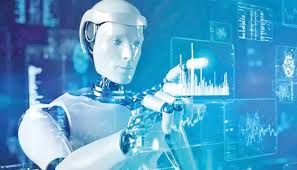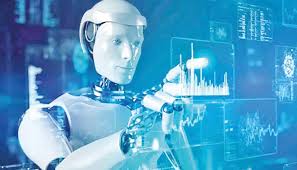
Executives from top US tech companies were summoned recently to the White House and told they must safeguard the public from the hazards of artificial intelligence (AI). Google CEO Sundar Pichai, Microsoft CEO Satya Nadella, and OpenAI CEO Sam Altmann were informed they had a "moral" obligation to protect society.
The White House has stated that it may further regulate the sector. Recently released AI products, such as ChatGPT and Bard, have piqued the public's interest. They let ordinary users to interact with "generative AI," which can summarise information from many sources in seconds, debug computer code, compose presentations, and even poetry that seem plausible enough to be human-generated.
Their implementation has spurred new debate about the role of AI in society by providing a practical representation of the new technology's potential risks and rewards.
On Thursday, technology CEOs gathered at the White House were told it was up to them to "ensure the safety and security of their products" and were warned that the government was open to new rules and legislation addressing artificial intelligence.
According to Sam Altman, CEO of OpenAI, the company powering ChatGPT, CEOs are "surprisingly on the same page on what needs to happen" in terms of legislation.
Following the meeting, US Vice President Kamala Harris stated in a statement that the new technology may jeopardise safety, privacy, and civil rights, but it also had the ability to improve people's lives.
She stated that the commercial sector has "an ethical, moral, and legal responsibility to ensure the safety and security of their products."
The White House announced a $140 million National Science Foundation commitment to establish seven new AI research institutions.
Both lawmakers and tech experts have been calling for the huge development in emerging AI to be more regulated. Geoffrey Hinton, the "godfather" of AI, resigned from Google earlier this week, stating he now regrets his work.
He described some of the threats of AI chatbots as "quite frightening."
A letter signed by Elon Musk and Apple co-founder Steve Wozniak in March asked for a halt to the technology's rollout. Lina Khan, the head of the Federal Trade Commission (FTC), detailed her thoughts on how and why AI should be controlled on Wednesday.
There are concerns that AI will swiftly replace people's occupations, as well as that chatbots like ChatGPT and Bard will be unreliable and spread misinformation. There are also fears that generative AI could violate intellectual property laws. AI voice cloning could amplify fraud. AI-generated videos have the potential to spread fake news.
However, proponents such as Bill Gates have argued that a "pause" in AI would not "solve the challenges" that lie ahead. According to Gates, it is preferable to concentrate on how to best apply AI breakthroughs.
Others say there is a risk of over-regulation, which would offer Chinese IT businesses a strategic advantage.
(Source:www.thefinancialexpress.com)
The White House has stated that it may further regulate the sector. Recently released AI products, such as ChatGPT and Bard, have piqued the public's interest. They let ordinary users to interact with "generative AI," which can summarise information from many sources in seconds, debug computer code, compose presentations, and even poetry that seem plausible enough to be human-generated.
Their implementation has spurred new debate about the role of AI in society by providing a practical representation of the new technology's potential risks and rewards.
On Thursday, technology CEOs gathered at the White House were told it was up to them to "ensure the safety and security of their products" and were warned that the government was open to new rules and legislation addressing artificial intelligence.
According to Sam Altman, CEO of OpenAI, the company powering ChatGPT, CEOs are "surprisingly on the same page on what needs to happen" in terms of legislation.
Following the meeting, US Vice President Kamala Harris stated in a statement that the new technology may jeopardise safety, privacy, and civil rights, but it also had the ability to improve people's lives.
She stated that the commercial sector has "an ethical, moral, and legal responsibility to ensure the safety and security of their products."
The White House announced a $140 million National Science Foundation commitment to establish seven new AI research institutions.
Both lawmakers and tech experts have been calling for the huge development in emerging AI to be more regulated. Geoffrey Hinton, the "godfather" of AI, resigned from Google earlier this week, stating he now regrets his work.
He described some of the threats of AI chatbots as "quite frightening."
A letter signed by Elon Musk and Apple co-founder Steve Wozniak in March asked for a halt to the technology's rollout. Lina Khan, the head of the Federal Trade Commission (FTC), detailed her thoughts on how and why AI should be controlled on Wednesday.
There are concerns that AI will swiftly replace people's occupations, as well as that chatbots like ChatGPT and Bard will be unreliable and spread misinformation. There are also fears that generative AI could violate intellectual property laws. AI voice cloning could amplify fraud. AI-generated videos have the potential to spread fake news.
However, proponents such as Bill Gates have argued that a "pause" in AI would not "solve the challenges" that lie ahead. According to Gates, it is preferable to concentrate on how to best apply AI breakthroughs.
Others say there is a risk of over-regulation, which would offer Chinese IT businesses a strategic advantage.
(Source:www.thefinancialexpress.com)














